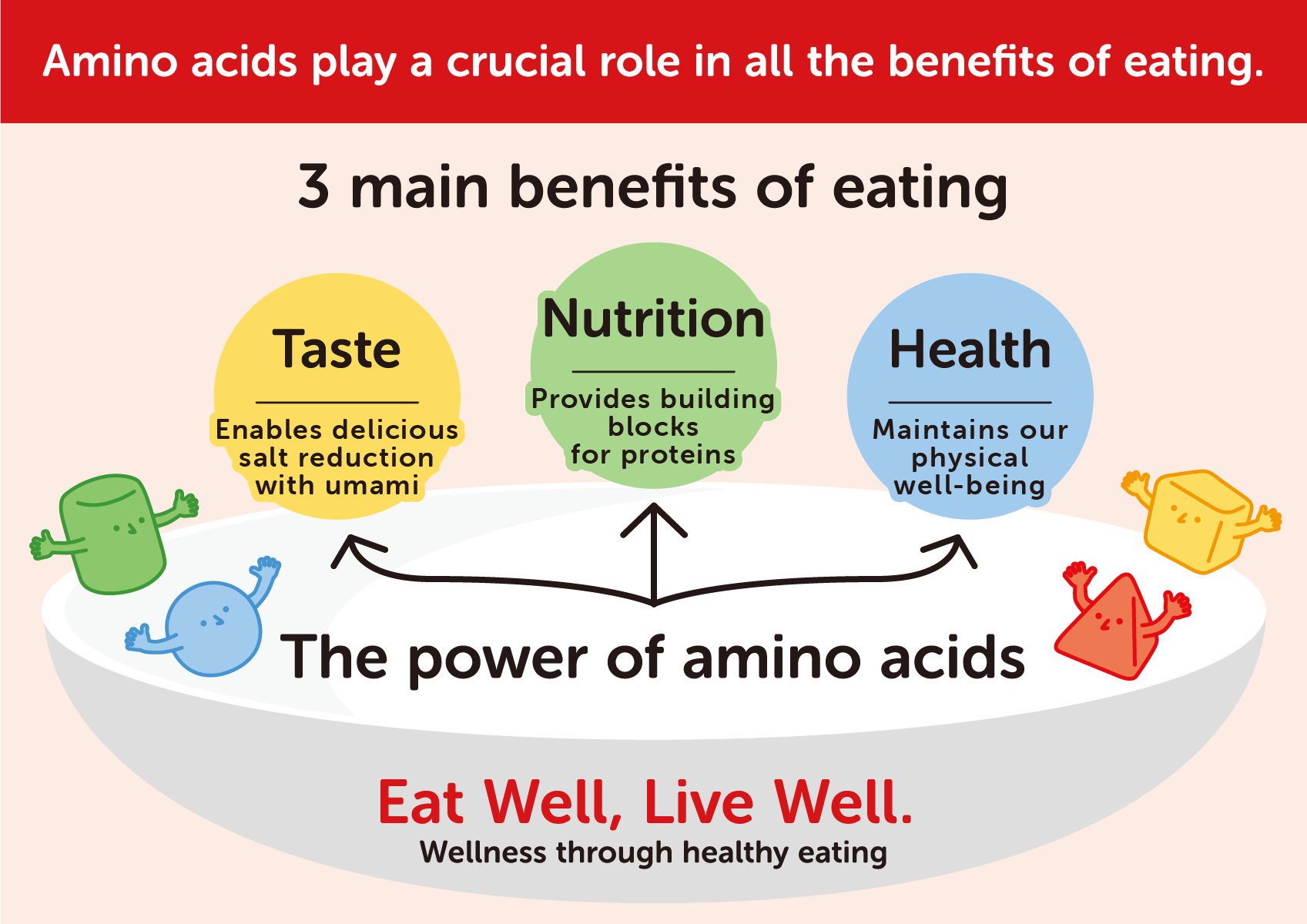He noticed the bacteria would not grow near the mold. Research revealed that the mold, penicillium, could be used to combat pathogens that caused diseases ranging from pneumonia and diphtheria to meningitis and scarlet fever. Fleming’s discovery gave birth to the field of antibiotics and ultimately saved untold millions of lives.


When the test was over, he learned he’d been taking the placebo containing glycine.
Something similar, if less momentous, occurred in the early 2000s when the Ajinomoto Group was studying the physiological effects of two amino acids. The blind study featured a control group given a placebo. That placebo contained a third amino acid, glycine, thought to have no special properties. One of the researchers participating in the study sometimes forgot to take his dose in the morning and instead took two before bed.

Morishima’s experience also made her aware of the connection between eating and health.
Our bodies contain over 100,000 different proteins, all of which are made up of combinations of just twenty amino acids, nine of which must be obtained from food. These proteins are used to build muscle as we grow. “Muscle proteins are broken down and used for energy,” explains Morishima, “so amino acid intake is essential for repairing muscles when they become deficient in proteins.” This is also especially important when we exercise and as we age.

The power of amino acids goes further. They underpin all the body’s vital functions, including sleep, and maintain our physical well-being. “When certain amino acids are lacking, or out of balance, those functions cease working properly,” says Morishima. “A wide range of amino acids work to maintain homeostasis, the body’s normal state.” Some also make foods taste great, ensuring we get adequate nutrition without the need for much added salt, crucial since excessive sodium intake is a health concern worldwide.
Find out more:


